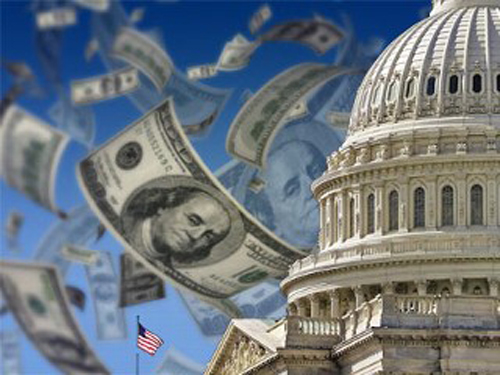
Obama Announces New Incentive Program for Healthcare Innovation. Is giving away dollars the right strategy?
Giving Away Dollars: The Money Is On the Table
Giving away dollars – does it make sense? The Obama Administration announced yesterday that they will be kicking off an initiative to provide funding for “innovations” in federal healthcare programs which cut costs and improve patient outcomes. As reported by Devin Dwyer the initiative will “reward the most “compelling new ideas” for lowering costs and improving care through the utilization of lucrative federal grants. Specifically the money will be utilized to award projects that conduct testing and/or utilize new payment and delivery models. The government is looking to discover programs which are able to quickly and effectively cut healthcare costs. But many are questioning the efficacy and rationale behind this initiative.
- The Application period will run from June 14 to August 15
- Projects must be able to be implemented within six months to qualify for funding
- Special consideration will be given to project which generate jobs
- Selected Projects will be announced in March 2013
Giving Away Dollars: This Isn’t the First Time, and the Results are Questionable
Giving away dollars – does it make sense? In fact this isn’t the first round of federal grants awarded for Healthcare Innovation. A round one kick off of Health Care Innovation Awards occurred in May and June 2012 with 107 organizations receiving between $1 million dollars and $30 million dollars per “innovative” initiative. But some of the initiatives, while aimed at improving healthcare, do not appear to be expected to yield savings. Here is a snapshot of entities who received grants which are in excess of the expected savings they are going to produce
| Organization | Funding Received | Estimated Savings |
| Christiania Care Health System | $9.9 million | $376,327 |
| Denver Health and Hospital Authority | $19.7 million | $12.7 million |
| Family Service Agency of San Francisco | $4.7 million | $4.2 million |
| George Washington University | $1.9 million | $1.7 million |
| Lifelong Medical Care | $1.1 million | $1.1 million |
| YMCA | $11.8 million | $4.2 million |
| South County Community Health Center | $7.3 million | $6.2 million |
| Trustee of the University of PA | $4.8 million | $2.7 million |
| University of Arkansas | $3.6 million | $1.2 million |
There are many projects which do anticipate yielding large savings vs. the amount invested, but an overall look at the viability of this largely experimental incentive plan warrants examination. In fact, according to CMS in their project profile document “project data (e.g. gross savings estimates, population served, etc.) are three year estimates provided by each organization…
[and] while all projects are expected to produce cost savings beyond the three year period, some may not achieve net cost savings until after the initial three year period..”
Though certainly the data does not reflect a net savings for each project vs. what the initial funding amount was (click here for the full CMS report) and some opponents of the initiative question the efficacy and the aims.
Giving Away Dollars: Is the Issue about Healthcare Innovation or Job Creation?
Some have questioned whether the incentives are around Healthcare Innovation, or a governmental push for job creation. Indeed, those applicants who address job creation are favored during the submission phase for round two, but let’s take a look at the amount awarded and the jobs created. In fact, the announcement of the upcoming initiative was couched as part of Obama’s “Can’t Wait” campaign, and slated an emphasis on job creation, though round one of the Innovations in Healthcare grants produced less than stellar results, and even these are tentative based on estimates.
Funding Granted in Round One: ~$893 Million Dollars
Estimated Jobs Created Through Funded Projects: 2,723.82 (thousand)
Cost per created job: $327,947
The verdict is out on whether this push for federal funds marked toward improving efficacy, efficiency, and care in the newly shaped healthcare arena will prove beneficial, or, is just as one republican critic called it, a “$1 billion-dollar experiment”
We would love to hear what you think, send us an email at newideas@bhmpc.com or connect with us on Linked In!





